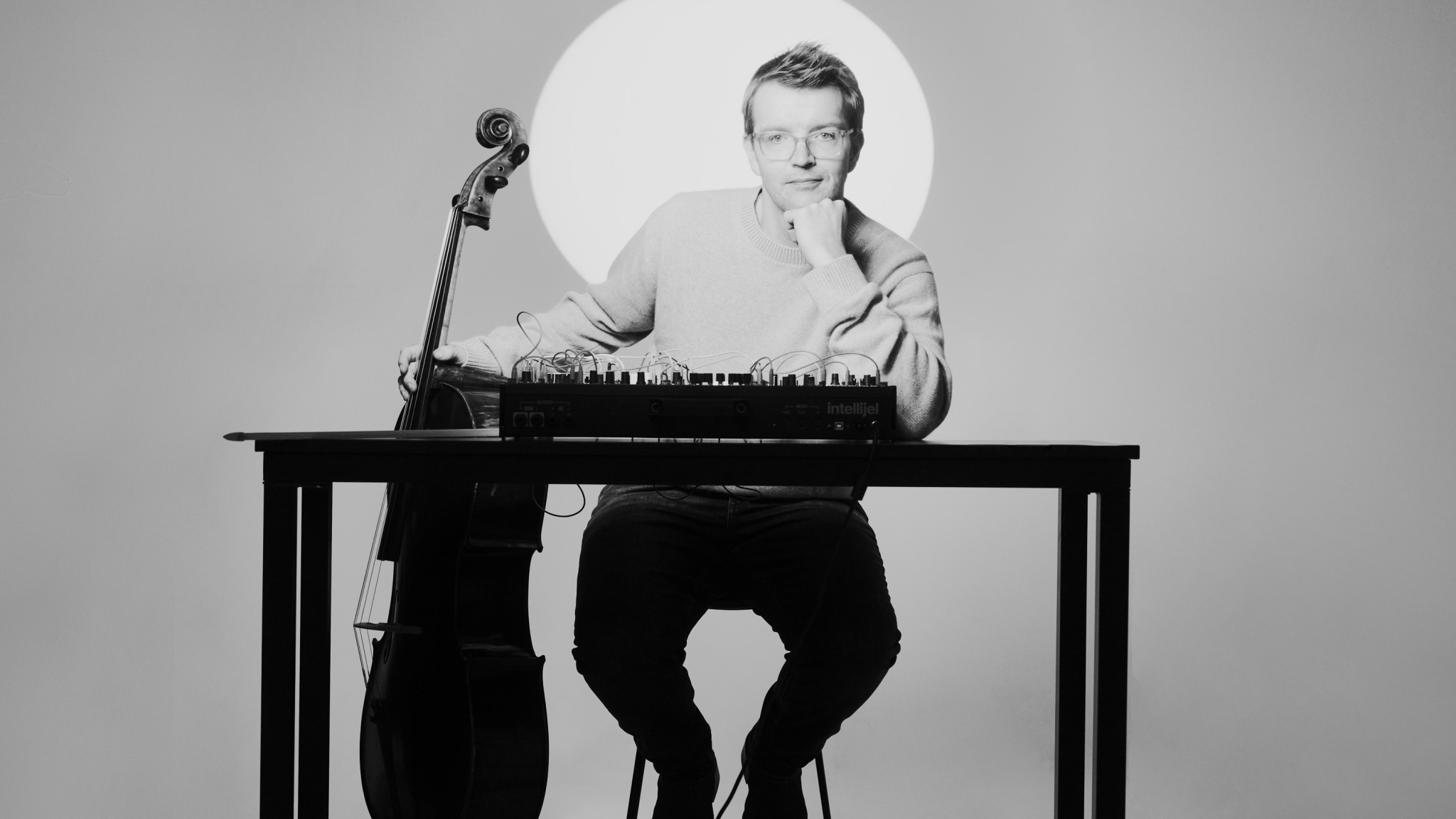The new self-titled album from award-winning cellist and composer Peter Gregson is officially described as ”a collection of nine songs without words for cello, modular synthesizer, and string quartet”—but it only takes a cursory listen to realise it is so much more than that.
While he has created a great deal of celebrated music—film soundtracks such as 2019’s Adolescence, scores for television, computer games and ballets, collaborations with artists as diverse as Ed Sheeran and Hans Zimmer, not to mention his own acclaimed albums on DG and elsewhere—the approach for this new project heralds exciting new territory.
“It’s the closest to what I hear in my head that I’ve ever reached,” says the composer. “For years I’ve been doing all these recordings that have mostly involved putting a mic halfway at the back of a concert hall in order to get this big kind of ‘wash’ sound. It’s always bothered me, because the cello doesn’t actually sound like that when I’m playing it. To me, it’s textured and clanky—it makes a lot of noise. So although this classic style of recording is beautiful in its own way, the personality of the player is washed out along with the sounds. I wanted to bring it all closer, so that the listener can hear the same personality and sounds that I hear when I play.”
The album, recorded at Peter Gabriel’s Real World Studios, has been foregrounded by a series of superlative singles—”Vision”, “Ritual” and “Horizon”—that showcase Gregson’s world-class cello-playing with a creative suite of sounds produced by feeding the instrument through a self-built modular synthesiser, and extra input from a string quartet. By turns soaring, mournful, optimistic and reflective, the nine songs flow mellifluously into each other to create an imaginative and emotive soundtrack for our era.
“The original idea was to only use the cello but in different ways,” explains Gregson. “So, for example, taking frequencies from the instrument and creating additional sounds from them. I managed that for the first few tracks, and all of the hard-sequenced stuff at the end is also made purely with the cello; but I got to a point where it felt like I was just artificially restricting the gene pool. It needed other ingredients, so I brought in the string quartet and then built a modular synth to broaden the sound palette a bit more. Importantly, the synth has no oscillators though, just a mic input straight from the cello, so what you’re hearing is really still just the cello.”
Born in Edinburgh, in 1987, and educated at the Edinburgh Academy and London’s Royal Academy of Music, Gregson has enjoyed an impressively consistent string of successes since emerging into the public arena around 2009. He turned heads with his early albums Terminal and Lights In The Sky, caused waves with his score for the ballet Flow and film scores such as 2015’s A Little Chaos (directed by Alan Rickman) and the afore-mentioned Adolescent, and wow-ed audiences with stellar live performances of works by the likes of Max Richter, Jóhann Jóhannson, Steve Reich, among others.
Along the way he has regularly merged his cello-playing with synthesised sounds, not only on his own albums but also on projects such as his ambitious recomposing of Bach’s Cello Suites in 2018. Indeed, it’s an interest that he says goes way back to an early fascination with minimalist producers such as Steve Reich, Philip Glass and John Adams, as well as his friend and tutor Philip Sheppard at the Royal Academy.
“I understand why for some the synth is considered a complex soundsource,” he elaborates. “But I don’t quite get it when purists suggest you can’t put the two (synth and cello) together. For me, it has never been a problem. I grew up around electronic music and electronic sounds and like the sounds a synth can make, and that it kind of speaks to our generation. It’s also important to remember that the cello is a technical instrument in that it’s a very sophisticated example of engineering. It’s made out of natural materials, sure, but it’s also an impressive example of cantilevered mechanics. For me they’re a great fit together. Not only that, but it helps make things nicely slow and even wildly inefficient in the creation process. It took me three days to get the delay right for one of the tracks. That would have taken me 20 seconds on a computer but it would not have been as fulfilling. As musicians, we need to leave time and space for happy accidents—we are making music, after all, not doing a tax return.”
Aside from its obviously personal nature, Peter Gregson is unique in the way it was constructed and programmed, with each song placed chronologically in the order it was created—a facet that lends the project a particularly coherent flow. At its heart is the spirit of none other than Felix Mendelssohn, whose beloved “Songs Without Words” series provided some major inspiration; while his compositions were mainly for piano, some were also for cello, making Peter feel he was “in good company”.
“I wanted the album to have the same immediacy and connectivity of a song but without any lyrics,” he explains. “There is a narrative to the music but I don’t feel the need to say what it is. In the end, everyone’s interpretation and opinion of it is as valid as mine and I would prefer the listener to enjoy their own perspective and feelings without being influenced by mine. If you think of it like a jug of water, I want it to be only 70% full so that there’s room for others to really have a relationship with it and inhabit the music themselves. I really like the idea of leaving space for everyone’s story, and that’s also why I also kept the track names and artwork as minimal as possible. The intention is to celebrate the music’s own emotional complexity.”
Words by Paul Sullivan


